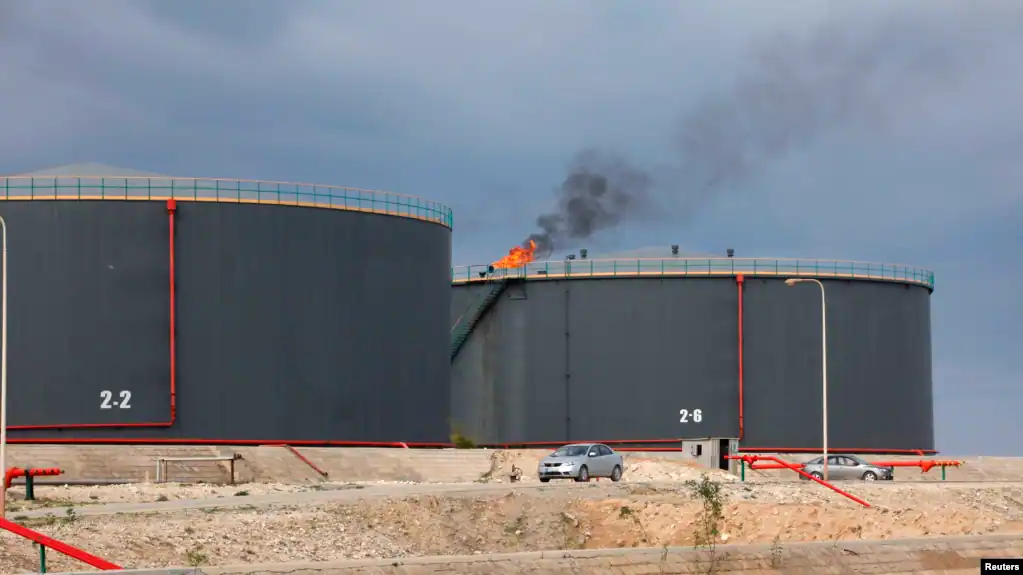Libya’s National Oil Corporation (NOC) has announced the shutdown of one of the country’s key refineries after intense clashes between rival armed groups erupted early Sunday. The violence caused significant fires at the Zawiya refinery, located 45 kilometers west of Tripoli, prompting the declaration of a “state of force majeure” and the highest level of emergency response.
The refinery, built in 1974, is the only facility in western Libya supplying the local market with fuel. With a refining capacity exceeding 120,000 barrels per day, it is the largest refinery in the country after Ras Lanouf. The closure has raised concerns about fuel supplies, although the NOC reassured the public that distribution remains unaffected for the time being.
According to the NOC’s official statement, clashes involving heavy and medium weapons broke out near the refinery’s perimeter, igniting multiple fires in storage tanks. Videos circulating on social media showed flames and thick smoke rising from the facility before the fires were brought under control by civil defense teams.
Khaled Ghulam, spokesperson for the NOC, confirmed in an interview with Libya al-Ahrar TV that all fires had been contained. “We reassure the residents of Zawiya and Tripoli that the fuel supply to the Brega Oil distribution company remains secure and that gasoline distribution to gas stations continues without interruption,” he stated.
The clashes reportedly resulted in at least one death and 10 injuries among the armed groups, according to Libyan news outlets, although official confirmation remains pending.
In response to the escalating violence, schools and the university in Zawiya have suspended classes, and the coastal road connecting the city to Tripoli was temporarily closed before reopening later in the morning.
The Zawiya refinery holds critical importance to Libya’s economy and fuel supply chain. In addition to processing over 120,000 barrels per day, it serves as a vital port terminal for importing and exporting fuel. Damage to the refinery not only threatens fuel distribution within Libya but also disrupts oil export commitments.
The NOC invoked a “state of force majeure”—a clause used in exceptional circumstances to exempt the company from liabilities in oil delivery contracts. The announcement reflects the severity of the situation and the potential implications for Libya’s fragile oil industry.
Zawiya, the third largest city in Tripolitania after Tripoli and Misrata, has been a recurring flashpoint for violent clashes between armed groups vying for control. In May, similar fighting resulted in one death and several injuries before tribal leaders intervened to restore calm. Sunday’s violence underscores the persistent instability plaguing the region and the broader challenges facing Libya’s recovery.
Since the fall of long-time leader Muammar Gadhafi in 2011, Libya’s vast hydrocarbon wealth—the largest proven reserves in Africa—has been both a blessing and a curse. The country remains mired in over a decade of political division, with two rival governments competing for power. This ongoing fragmentation has exacerbated security issues and contributed to frequent blockades of oil and gas infrastructure.
While Libya’s oil production has seen gradual recovery thanks to relative lulls in violence and renewed investments, disruptions remain a constant threat. Production, which hovered around 1.2 million barrels per day for much of the past decade, rose to 1.4 million barrels per day in early December—still below the pre-2011 levels of 1.5 to 1.6 million barrels daily.














Leave a comment